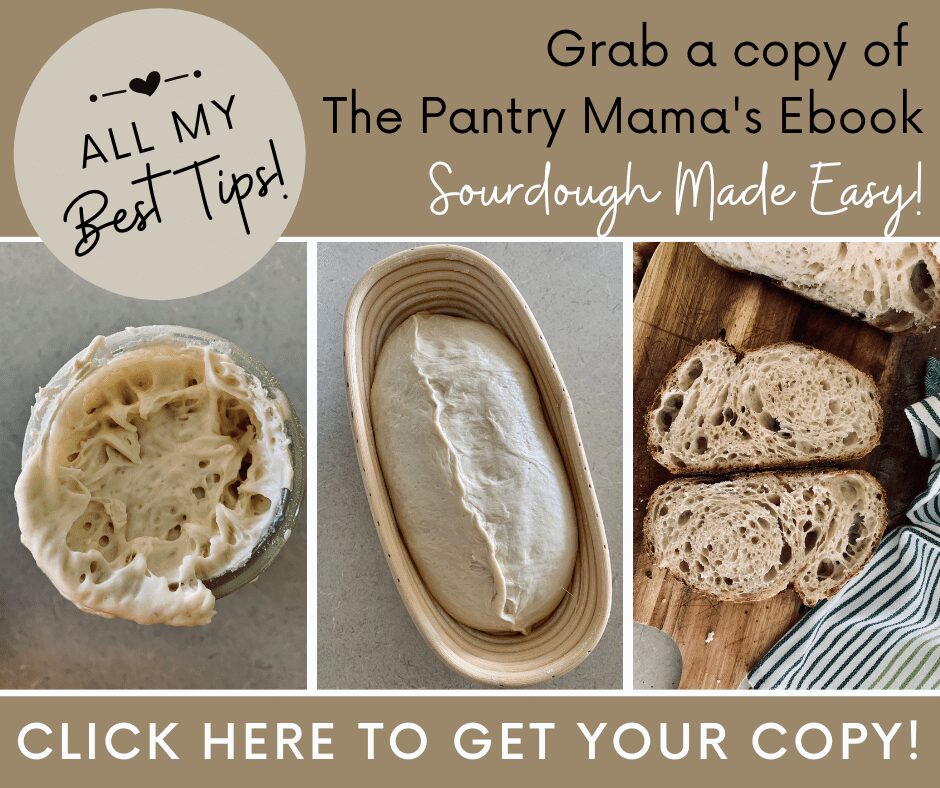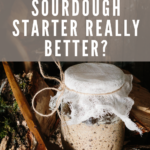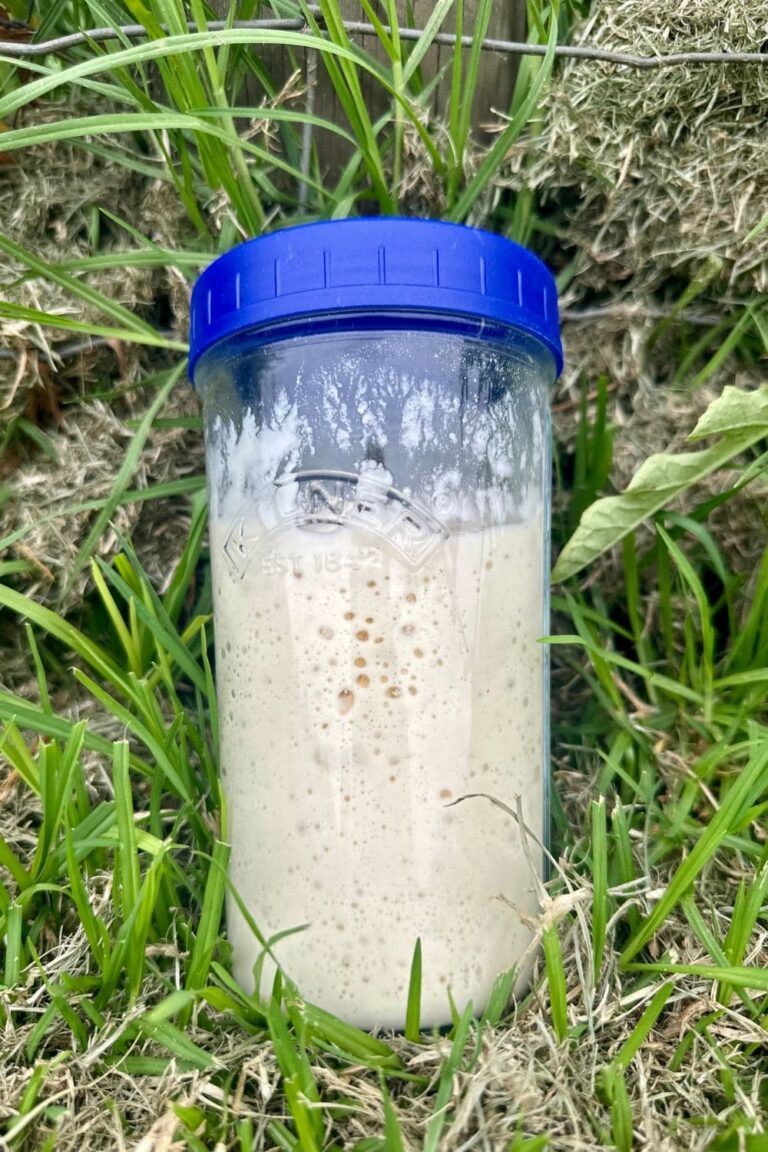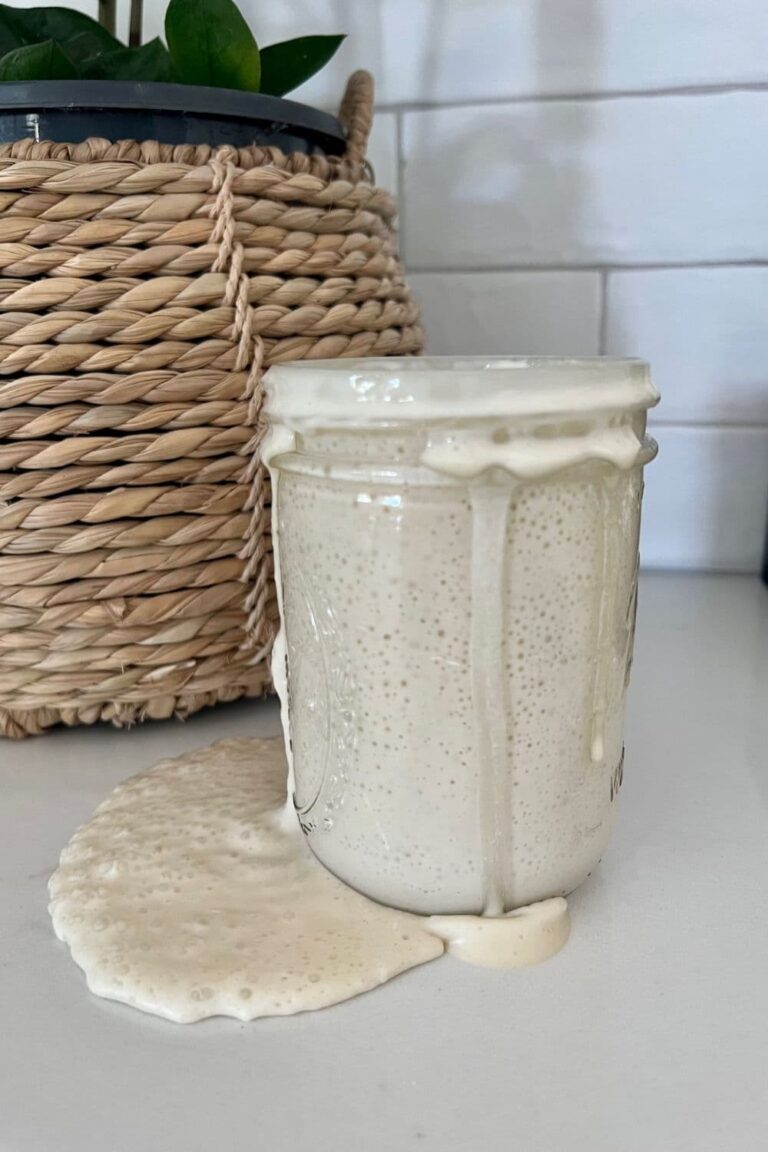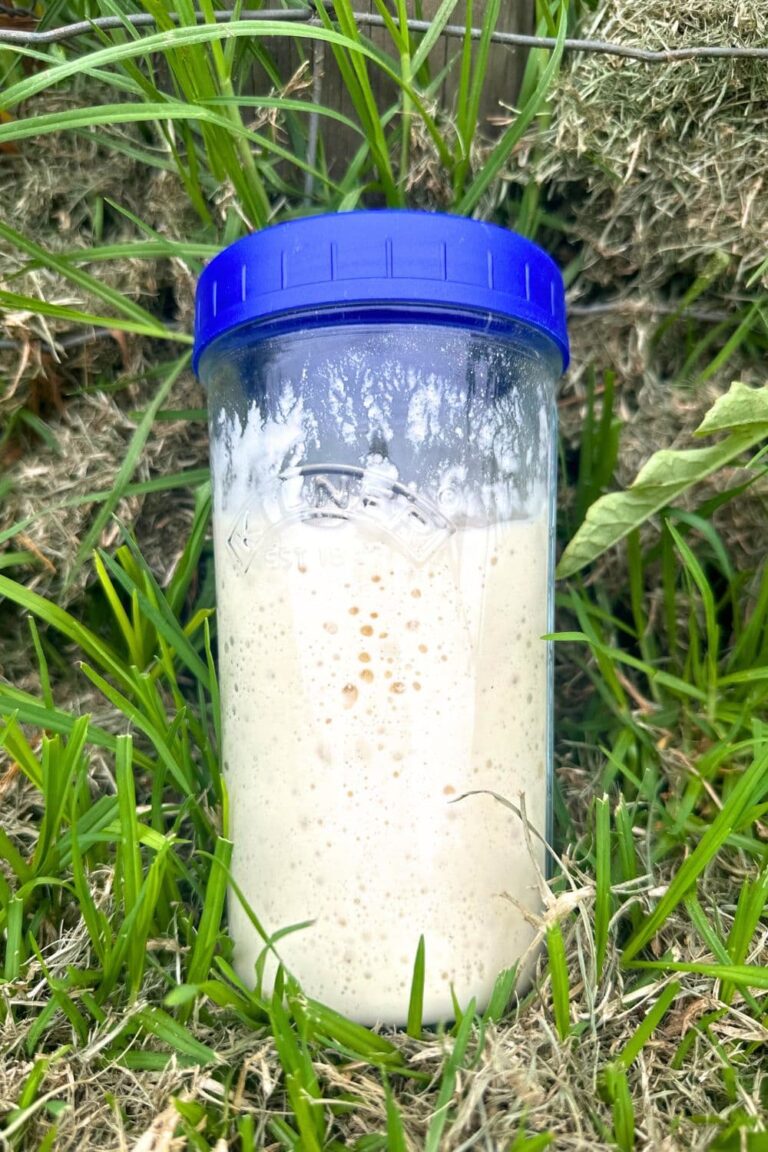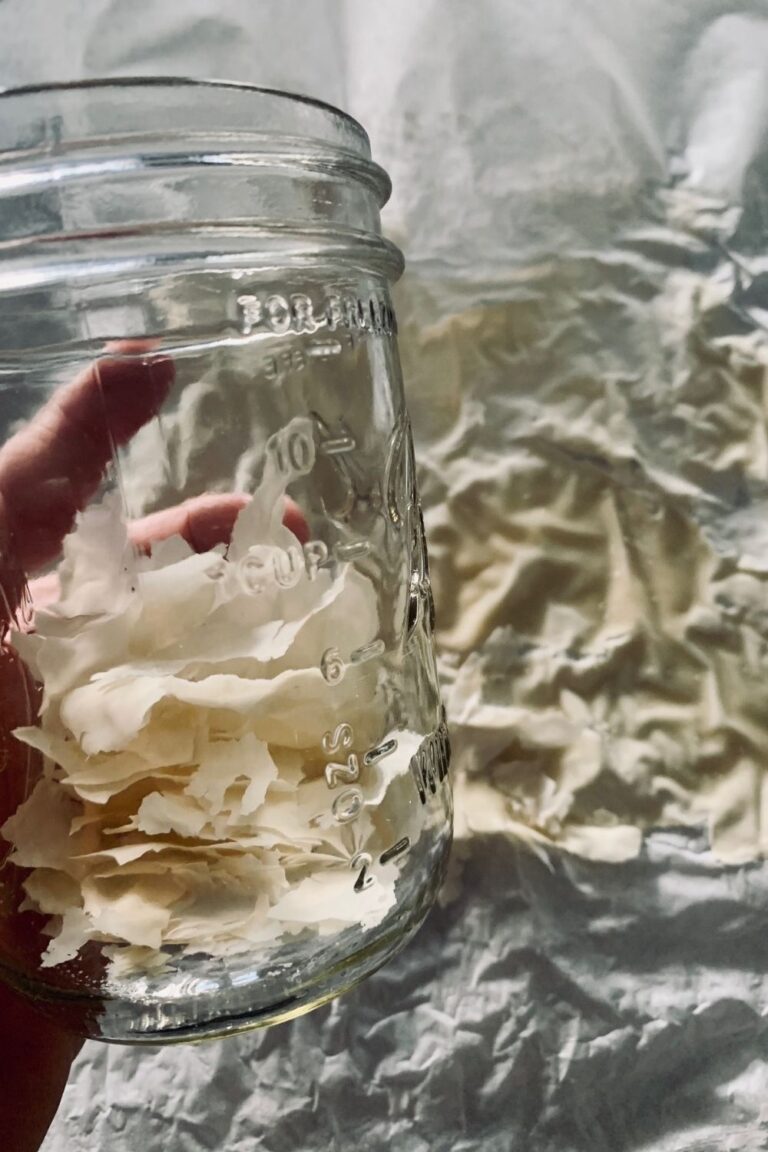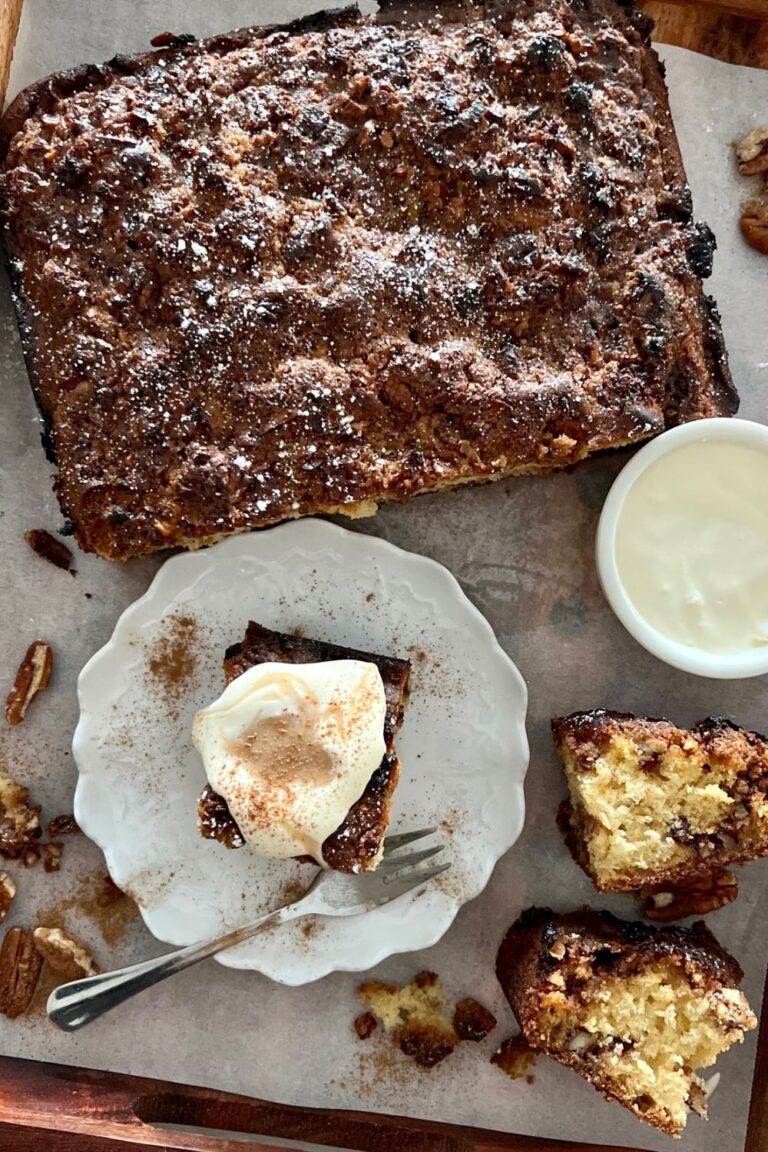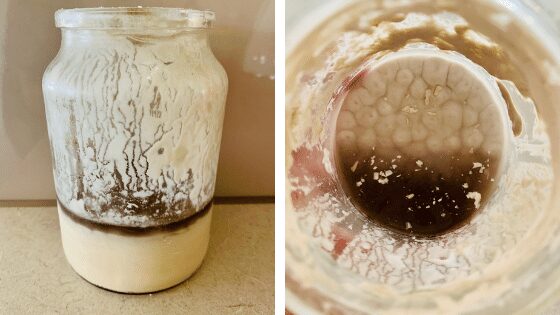Can A Starter Really Be 100 Years Old?
This post may contain affiliate links.
Is a 100 year old starter superior to a sourdough starter that you started at home?
And can a starter really be over 100 years old?
There are many questions asked around the age of a sourdough starter and whether an older sourdough starter really is better.
This blog aims to answer all of your questions around heirloom sourdough starters and whether they really can be hundreds of years old.
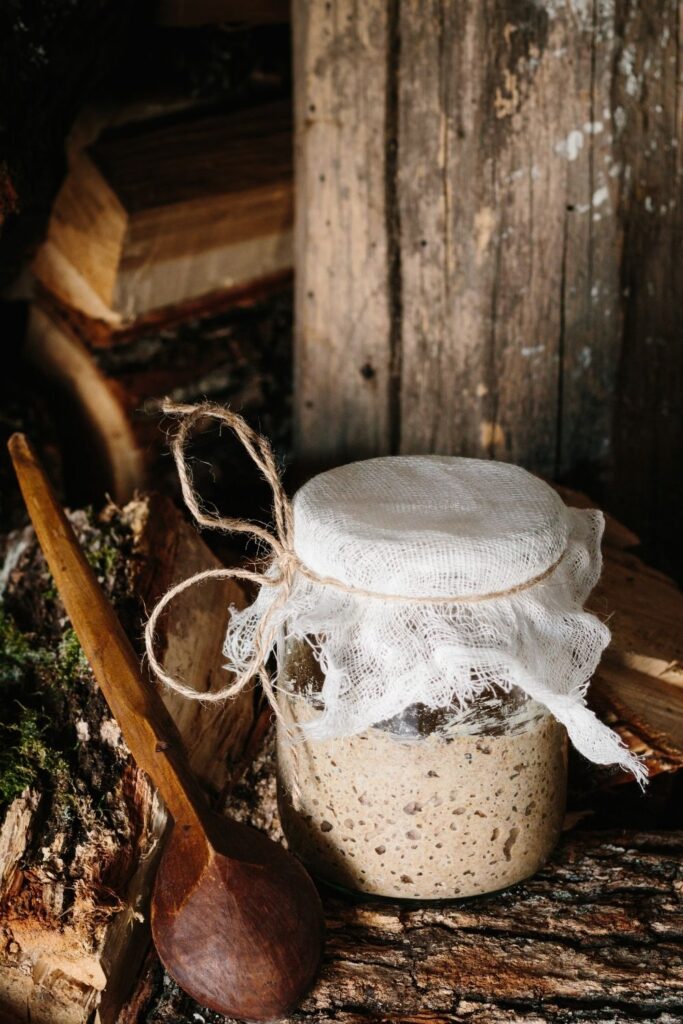
Is A 100 Year Old Starter Really Better?
Firstly, is a 100 year old starter superior to a sourdough starter that you started at home?
You would thinks so ... but actually not really.
For starters, unless you know & trust the person giving it to you - how do you really know how old it is (I’m a bit cynical about these things)!?
There are many sourdough starters advertised as 100 years old or from a certain part of the world … but … once you actually rehydrate it and start feeding it your own flour and water, then it’s really just your starter, right?
Yes that's right ... once you actually activate a dried sourdough starter (even if it's an heirloom starter) it becomes your sourdough starter.
It will change with the flour you feed it, the temperature and environment in your home and kitchen and with a different feeding schedule.
So can a starter really be over 100 years old?
Well yes, it can.
Maybe it has come from a bakery that has been using (and therefore feeding) their sourdough starter for 100 years or more (like Boudin Bakery).
Maybe someone dried a sourdough starter many moons ago and has kept it cool and dry.
Imagine if you dehydrated your sourdough starter and vacuum sealed it for someone to find in 100 years.
It is possible.
However, while it is possible for a sourdough starter to have a story and a connection to the past, the sourdough starter that exists today will be quite different to the one that was started 100 years ago.
A sourdough starter is a microbiome that is made up of yeast and bacteria that live symbiotically (you can read more about where sourdough yeast come from here).
These yeast and bacteria are respondent to flour, temperature, time and the environment they are kept it.
So it is likely that the colonies of yeast and bacteria that were started all those years ago have changed and responded to the environment they are maintained in.
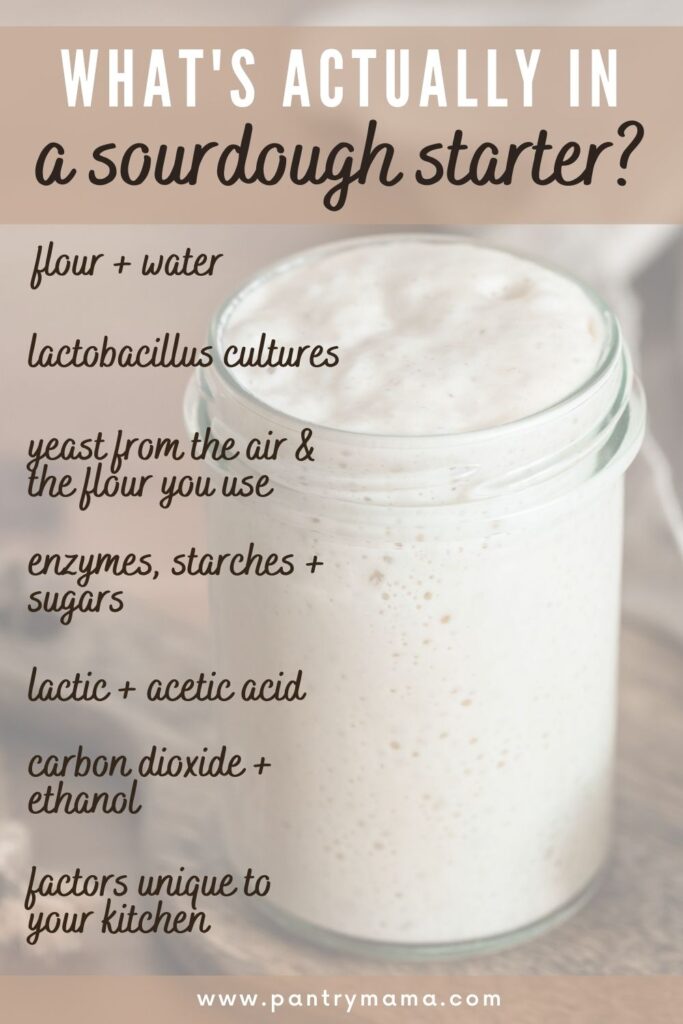
Mature Sourdough Starter vs An Old Sourdough Starter
Now, you know that I always say that a sourdough starer “matures” and this is true - it’s ability to rise bread and its flavour does increase over time.
But eventually it does plateau and hit a peak.
So with that being said, your 12 month old starter could be just as good as your friend’s so called 100 year old starter.
Flour actually plays a big part in the microbes and yeast colonies that inhabit your sourdough starter (and it’s even said that the temperature and feeding time/routine can change the microbes in your starter too).
So if you want to be true to that 100 year old starter, you need to feed it with the same flour & water and the same feeding routine).
Once you start feeding it with your own flour and water the microbes will change and the colonies within your starter will actually evolve - cool right?
This also means that buying a San Francisco starter for example, will not guarantee you a certain flavour profile - because again the microbial colonies will change as soon as you start feeding it in your kitchen, with different flour, water and temperatures than when it was created.
So, an older starter is not necessarily better than a younger starter, as long as the younger starter has reached its peak in flavour and rising abilities.
You can read about how to know if your sourdough starter is ready for baking here.
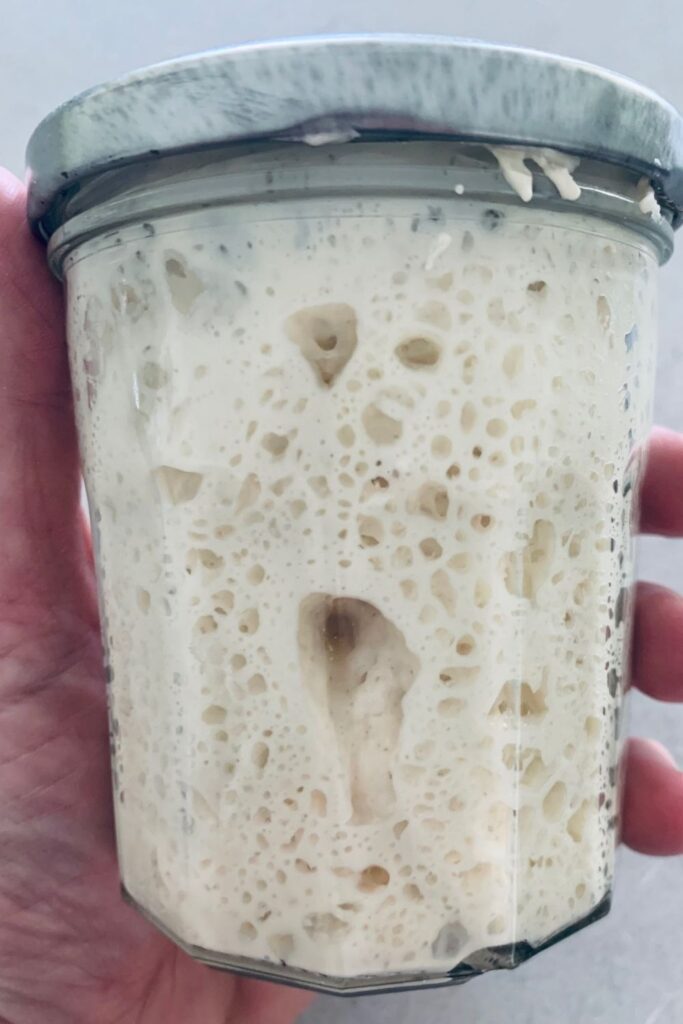
Adding To The Sourdough Starter Story
I do want to say though, that there is nothing wrong with carrying on a tradition.
If your starter has been passed on through generations or purchased from your local bakery for example then the history that goes with that starter is still very important and provides community and connection - and let’s face it - that is something to cherish in these uncertain times.
While the microbiology of your starter is most certain to be different that the original, the history that comes with it will remain unchanged.
And by becoming a guardian of sourdough heritage, you are further adding to the history of sourdough bread across time.
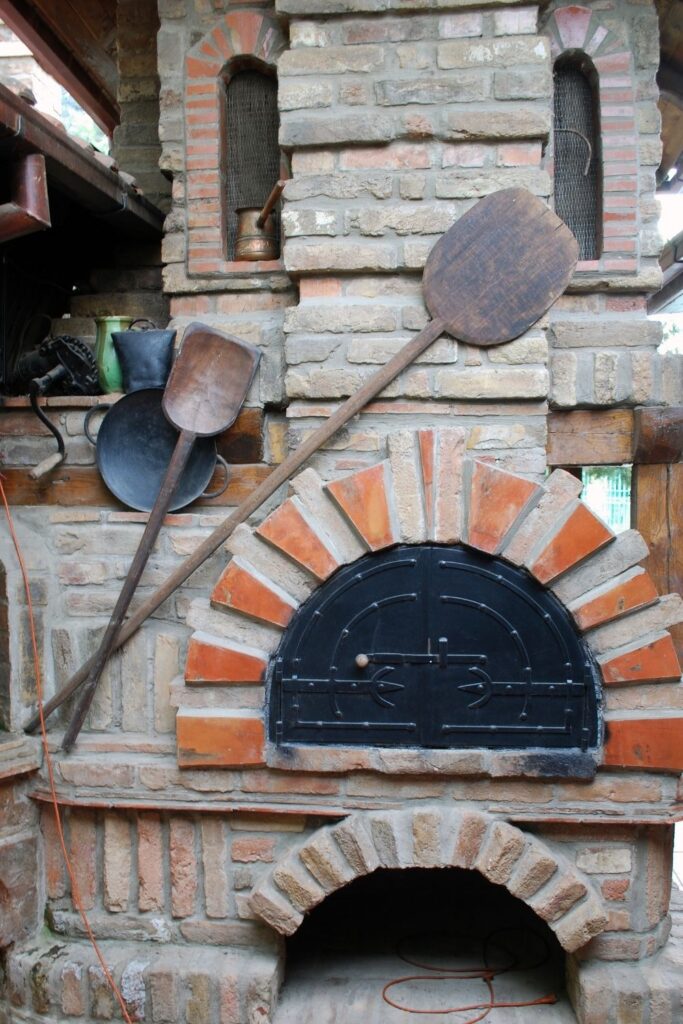
Benefits of Old Sourdough Starter
So what are the benefits to buying an established sourdough starter?
Well, regardless of age or the history that comes with it, purchasing an established sourdough starter can have its advantages.
- You can generally use the starter within a few feeds (bake ready).
- Skip the waiting period of starting a sourdough starter from scratch.
- More mature flavor profile (however this can change if you are reconstituting a purchased starter).
I've put together a comprehensive guide to help you decide whether you should buy a sourdough starter or make one from scratch.
While purchasing an established sourdough starter can be a way to fast track your sourdough journey, I truly believe there is something special about starting your own.
You can create your own piece of sourdough history with factors that are unique to your kitchen.
Frequently Asked Questions
Absolutely not. As long as the starter is being fed regularly and rising and falling as it's meant to, a starter really can't be too old. Of course, it could also have been preserved in a dried form or even stored in the fridge. If the starter isn't dried and has not been fed regularly, then it could become moldy and no longer viable. But in general terms, there's no such thing as a starter that's too old, provided it's been cared for.
Yes. A more mature starter will have a better established colony of lactobacillus (the good bacteria that give you the distinctive sourdough flavor). So as your starter matures and ages, it will develop a much stronger sourdough flavor.
If you are wanting to preserve your sourdough starter for a long time, it's best to dehydrate it and store it in a cool, dark, dry place. It needs to be sealed in a jar or zip loc bag to avoid coming in contact with moisture.
If you've purchased a sourdough starter in dried form, you can use these instructions to activate it and get it ready for baking bread.
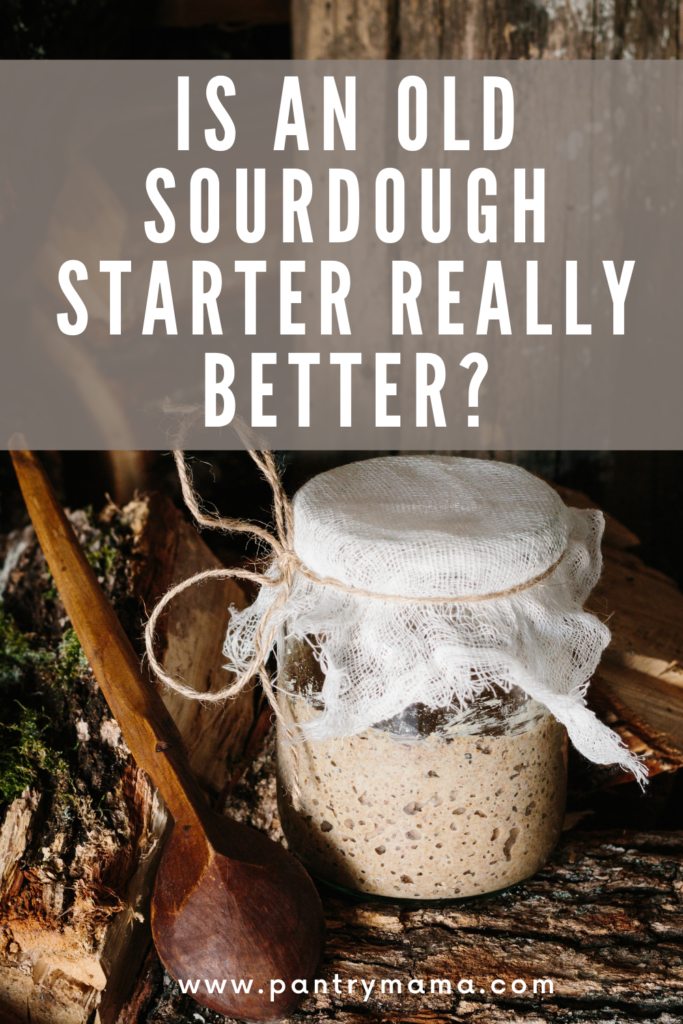
Further Reading
If you enjoyed reading about heirloom sourdough starters, you might enjoy these ideas:
- Want to build your own sourdough starter? This step by step guide will get you off to a flying start.
- Want to give your sourdough starter a boost? Check out these tips for strengthening a sourdough starter.
- Ready to bake sourdough bread? Check out my beginner's guide to baking simple sourdough.
